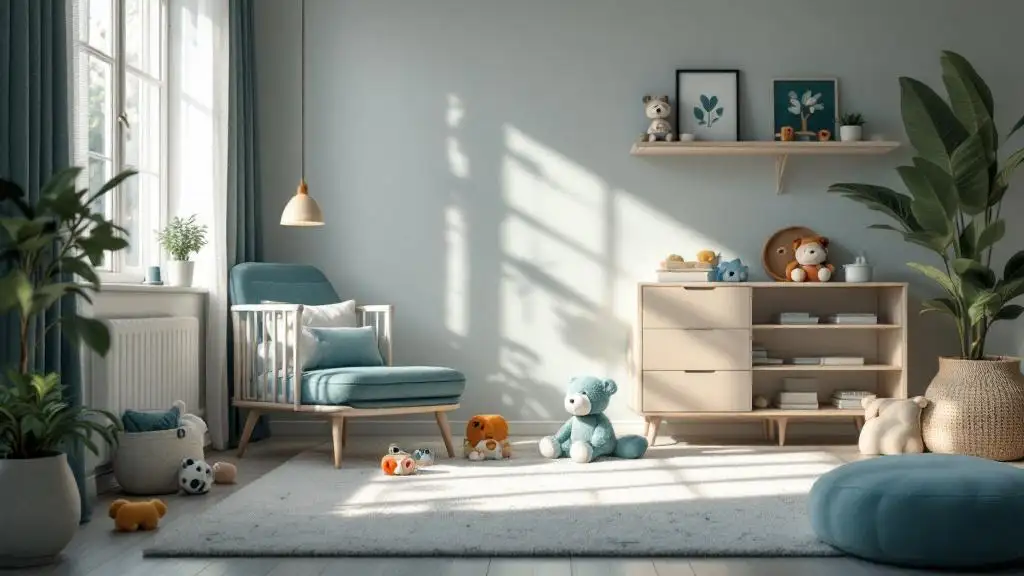Dating with Autism

Dating can be challenging for anyone, but for individuals on the autism spectrum, navigating romantic relationships often comes with unique considerations and opportunities. With approximately 1 in 44 children diagnosed with autism spectrum disorder (ASD) according to the CDC, and many adults receiving late diagnoses, understanding autism and dating has become increasingly important in our society.
This comprehensive guide explores the realities of dating with autism, offering practical advice, dispelling common myths, and celebrating the unique strengths that autistic individuals bring to romantic relationships.
Understanding Autism and Relationships
Autism spectrum disorder affects how individuals communicate, interact socially, and process sensory information. However, the desire for connection, love, and companionship is universal. Research shows that many autistic adults express a strong interest in dating and forming romantic relationships, challenging outdated stereotypes about autism and emotional capacity.
Common Misconceptions About Autism and Dating
One of the most harmful misconceptions is that autistic individuals lack empathy or cannot form deep emotional connections. In reality, many autistic people experience emotions intensely and can form profound, meaningful relationships. They may simply express emotions differently or need more time to process social cues.
Another myth suggests that autistic individuals are not interested in sex or intimacy. Studies indicate that autistic adults have similar sexual interests and desires as neurotypical individuals, though they may approach intimacy differently.
The Dating Landscape for Autistic Adults
Statistics on Autism and Relationships
Current research reveals important insights about autism and dating:
- Studies suggest that approximately 70% of autistic adults express interest in romantic relationships
- However, only about 33% of autistic adults have been in a romantic relationship, compared to 85% of neurotypical adults
- Late diagnosis is common, with many adults discovering they're autistic in their 20s, 30s, or later
- Online dating has become increasingly popular among autistic individuals, with many finding it less overwhelming than traditional dating approaches
Unique Challenges in Dating
Autistic individuals may face several challenges when dating:
Communication Differences: Direct communication styles common in autism can sometimes be misinterpreted as rudeness or lack of interest. Conversely, understanding neurotypical communication patterns, including subtext and non-verbal cues, can be challenging.
Sensory Sensitivities: Many autistic people experience heightened sensitivity to sounds, lights, textures, or crowds. Traditional dating venues like noisy restaurants or crowded bars may be overwhelming.
Social Anxiety: The unpredictability of dating and social expectations can trigger anxiety in autistic individuals who thrive on routine and clear expectations.
Executive Function Challenges: Planning dates, managing time, and organizing logistics can be more difficult for some autistic individuals.
Strengths That Autistic Individuals Bring to Relationships
While challenges exist, autistic individuals often possess qualities that make them exceptional partners:
Authenticity and Honesty
Autistic individuals are often refreshingly honest and genuine. They typically say what they mean and mean what they say, which can create relationships built on trust and transparency.
Loyalty and Commitment
Many autistic people are deeply loyal partners who value long-term commitments. Once they form a connection, they often invest significantly in maintaining and nurturing the relationship.
Attention to Detail
The attention to detail common in autism can manifest as remembering important dates, preferences, and small details that matter to their partner.
Passionate Interests
Special interests can be an asset in relationships, bringing enthusiasm, knowledge, and engaging conversation to partnerships.
Consistent Emotional Expression
While autistic individuals may express emotions differently, they often do so consistently, helping partners understand their emotional patterns and needs.
Practical Dating Tips for Autistic Individuals
1. Choose Compatible Dating Platforms
Online dating can be particularly beneficial for autistic individuals because it:
- Allows time to process and craft responses
- Provides clear structure and expectations
- Enables sharing interests and preferences upfront
- Reduces initial social pressure
Consider platforms that allow detailed profiles where you can share your interests, communication preferences, and what you're looking for in a relationship.
2. Communicate Your Needs Early
Being upfront about your autism diagnosis and needs isn't required, but many find it helpful. When you're comfortable, consider sharing:
- Your communication style preferences
- Sensory sensitivities
- Need for routine or predictability
- Your interests and passions
3. Plan Sensory-Friendly Dates
Choose date locations and activities that align with your sensory needs:
- Quiet cafes during off-peak hours
- Museums or art galleries
- Nature walks or parks
- Home-based activities like cooking together
- Activities related to your special interests
4. Practice Social Scripts
Developing conversation starters and responses can help reduce anxiety:
- Prepare questions about common interests
- Practice active listening techniques
- Have strategies for managing uncomfortable situations
- Plan how to end dates gracefully
5. Build a Support Network
Connect with other autistic individuals who are dating or in relationships. Online communities, support groups, and autism organizations can provide valuable advice and encouragement.
Dating Someone with Autism: A Guide for Neurotypical Partners
Understanding Your Autistic Partner
If you're neurotypical and dating someone with autism, understanding their perspective is crucial:
Communication: Your partner may communicate more directly than you're used to. This isn't rudeness—it's honesty. Ask for clarification when needed and be explicit about your own needs.
Routine and Predictability: Changes in plans may be more stressful for your autistic partner. Provide advance notice when possible and understand that flexibility may take extra effort.
Sensory Considerations: Be mindful of environments that might be overwhelming. Ask about preferences and be willing to accommodate sensory needs.
Processing Time: Your partner may need extra time to process social situations or emotional discussions. Allow for this without pressure.
Building a Strong Relationship
Celebrate Differences: Embrace what makes your partner unique. Their autism is part of who they are, not something to be fixed or changed.
Communicate Openly: Create a safe space for honest communication about needs, boundaries, and expectations.
Learn Together: Educate yourself about autism while recognizing that every autistic person is unique.
Be Patient: Building understanding takes time. Be patient with yourself and your partner as you navigate differences.
Intimacy and Autism
Physical Intimacy Considerations
Physical intimacy can be wonderfully fulfilling for autistic individuals, though it may require some considerations:
Sensory Factors: Some autistic people may be sensitive to certain textures, temperatures, or types of touch. Open communication about preferences is essential.
Communication: Direct communication about desires, boundaries, and comfort levels is crucial for positive intimate experiences.
Routine and Predictability: Some autistic individuals may prefer routine in intimate situations, while others may need variety.
Emotional Intimacy
Emotional intimacy often develops differently for autistic individuals:
Expression Styles: Emotional expression may be more subtle or different from neurotypical patterns.
Processing Time: Emotional processing may take longer, requiring patience and understanding.
Depth of Connection: Many autistic individuals form deep, meaningful emotional connections that can be incredibly fulfilling.
Long-Term Relationship Success
Marriage and Partnership Statistics
Research on long-term relationships involving autistic individuals shows:
- Many autistic adults successfully maintain long-term partnerships and marriages
- Mixed neurotype couples (one autistic, one neurotypical partner) can be highly successful with understanding and communication
- Autistic couples often report high relationship satisfaction due to mutual understanding
Keys to Long-Term Success
Ongoing Communication: Regular check-ins about needs, challenges, and relationship satisfaction are crucial.
Flexibility and Adaptation: Both partners should be willing to adapt and find solutions that work for both.
Professional Support: Couples therapy with an autism-informed therapist can be beneficial.
Community Connection: Maintaining connections with autism communities and support networks provides ongoing resources.
Resources and Support
Finding Support
Several organizations provide resources for autistic individuals navigating relationships:
- Autism support groups and meetups
- Online communities and forums
- Autism-informed relationship counselors
- Dating apps with autism-friendly features
Professional Help
Consider seeking support from:
- Therapists specializing in autism and relationships
- Social skills training programs
- Autism advocacy organizations
- Relationship counselors experienced with neurodivergent couples
Conclusion
Dating with autism presents unique challenges and opportunities. While societal barriers and misconceptions exist, many autistic individuals build fulfilling, loving relationships. The key lies in understanding, communication, and embracing neurodiversity as a strength rather than a limitation.
Success in dating and relationships isn't about changing who you are—it's about finding compatible partners who appreciate your authentic self. Whether you're autistic yourself or dating someone on the spectrum, remember that love, understanding, and genuine connection transcend neurotypical expectations.
By fostering awareness, promoting acceptance, and providing practical support, we can create a dating landscape where autistic individuals have equal opportunities to find love and build meaningful relationships. The journey may require patience and understanding, but the rewards of authentic connection make it worthwhile.
Remember, every person—autistic or neurotypical—deserves love, respect, and the opportunity to form meaningful relationships. With the right approach, support, and understanding, dating with autism can lead to beautiful, fulfilling partnerships that enrich both partners' lives.





































































































